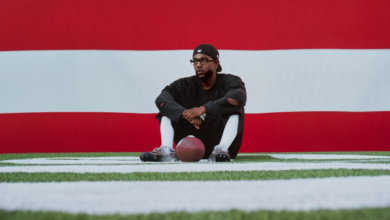4 Tips For Writing Your Best Music

When you set out to write a new song, there are countless creative paths you can take. Most will lead to places you’ve been before, but some paths will take you to new musical territories. Obviously, new and exciting directions are the places we want to take our music as songwriters, but getting there is rarely easy. It takes work to write great music, but you already know that.
But what you might not realize is that embracing strategies and routines can up your chances of making excellent music in a huge way. Here are four of them:
Define your songwriting practice
How, when, and why do you write music? If you’ve never asked yourself these questions, doing so can be a huge help. You might find that you love making music, but don’t do it that often. Or, you could discover that you’ve been making music for reasons that don’t authentically inspire you. By defining your songwriting practice, you’ll have an easier time making music and opportunities for creating your best work. Whether doing this results with you scheduling more time to create or in you reassessing your priorities depends on your unique needs, writing preferences, and background.
Create goals
If you’re a serious songwriter, you should have serious goals. I’m not talking about pie-in-the-sky goals like selling out arenas and becoming a famous musician. Instead, I think you should lay out ambitious and highly detailed short and long-term goals for your songwriting practice. This could be anything from writing a certain number of songs every month for a year to writing an album’s worth of material exclusively on a new instrument. These goals should be exciting and geared towards boosting your creative growth and productivity as an artist.
Build time to seek meaningful inspiration into your daily life
The sad truth is that it’s completely possible to build an uninspiring and predictable life in music, even if you spend the majority of your time writing, recording, and performing. Writing loads of music will undoubtedly boost your chances of creating great work, but it will be much harder to get there without meaningful inspiration. Since great art imitates life and helps people to understand their own lives, music can’t just be about music. So go out there and live a deep, novel, and human life. Find authentic inspiration in your daily existence, and you’ll have a path towards creating human and relatable music. This often means walking away from the mic, DAW, or piano, and being a non-musical human being for a bit. Take walks alone in nature. Travel. Make amends with an estranged friend. Then, you’ll have something to make music about.
Experiment, explore, and refine
This tip speaks to the grueling work of writing music that happens day after day and month after month for as long as we decide to keep creating. First, you’ll need to experiment and explore to uncover your best ideas. This often means tooling around on our instruments or singing gibberish until concrete ideas start to emerge. What it doesn’t mean is starting in the same place your last 18 songs started with. Writing “great music” is an annoyingly broad and vague term, but think of it this way: If an idea truly excites you and you can’t wait to work on it when you’re away from your writing process, you have true potential and creative energy on your hands. Arriving at these exciting ideas usually requires seeking out newness and risk accepting that failure is an unavoidable part of the work.
While some great ideas are almost fully formed out of the gate, lots of them need development to transform into great finished songs. This is where refinement comes in. Whether it’s you alone in your bedroom or your band holed up in a studio, taking the time and energy to shape and develop your ideas is crucial for allowing them to reach their full potential. It’s the process of seeing what can make ideas better, and it involves a willingness to see what works and what doesn’t. It’s natural to create something exciting and want to preserve it, but countless songs die at this stage through underdevelopment. If you really love an idea, remember that you can always go back to square one with an original demo.
We don’t get to choose whether we write conventionally successful music or not as artists. But we do have a say over quite a lot when we make music. By showing up to the writing process engaged, inspired, willing to experiment and fail, and committed to doing the work, we’ll have the best shot at making meaningful music.
Patrick McGuire is a writer, musician, and human man. He lives nowhere in particular, creates music under the name Straight White Teeth, and has a great affinity for dogs and putting his hands in his pockets.
[ad_2]
Source link





